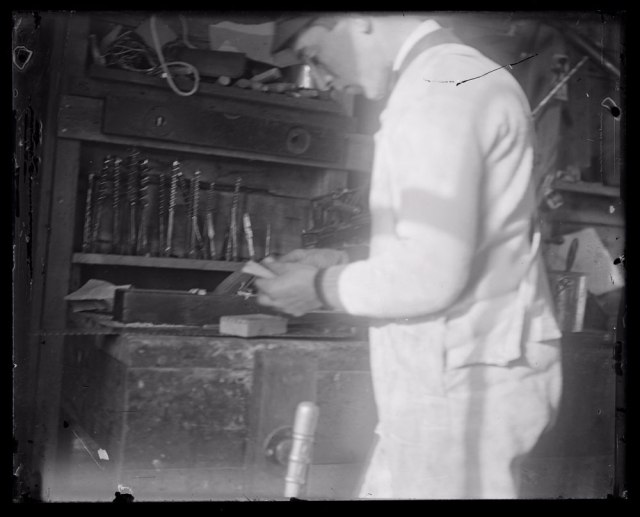Starting Right II –

The way of experience is to hold firmly to the knowledge that the end is in the beginning, and that each stage contributes its own share to the final perfection of the job as we want it to be. Taking it so, we can enjoy each stage for its own sake and resist the urge to scamp, which is also fatal. At first it will need a great deal of self-restraint. We do not take kindly in these days to anything requiring that kind of patience. Very few men are brought into contact with work that has old craft traditions, and it is by seeing an old craftsman in action and the infinite care he takes over every detail that is most readily acquired. But because woodwork is a very ancient craft and the use of creative skill is part of man’s inheritance, the right kind of approach will in the end come naturally enough to the man who sets out determined to acquire it. This does, in actual skill and artistry, take him a good many stages ahead of the sculptor, for instance, of today, who is capable of twisting a few strips of metal and labelling them “Man” or “Woman” or whatever name he fancies. The woodworker knows perfectly well it is no good trying such a trick and labelling it “chair” and being forced to meet his problems honestly with as much skill and artistry as he can command, he develops both.
The craftsman’s world does indeed carry within itself all the elements of wider living. In the everyday world we have the same need to be sure of our beginnings; the same need of standards which must be adhered to if we are going to a maturity that knows both freedom and wisdom and a sense of direction. A man is only truly free when, like the good craftsman, he adheres staunchly to the good he knows and builds the good life upon it. The house that has no secure foundation will soon totter and fall, but although we say stoutly enough that only a fool would think otherwise, how often do we fail to apply the practical wisdom which our tools teach us to the management of our own lives. For the rules that appear to limit and bind stand as guides along the highway, safeguarding us from the waste and misuse of the material of our lives — our gifts and talents, our health and strength, and relationships with others. And the true freedom which is the freedom to use our powers to their best and fullest extent, comes from observing them.
— Charles H. Hayward, The Woodworker, March 1955 issue (photo courtesy of Jeff Burks)
Check out “The Woodworker: The Charles H. Hayward Years,” the first two volumes of writings from the English magazine while Hayward was editor.


